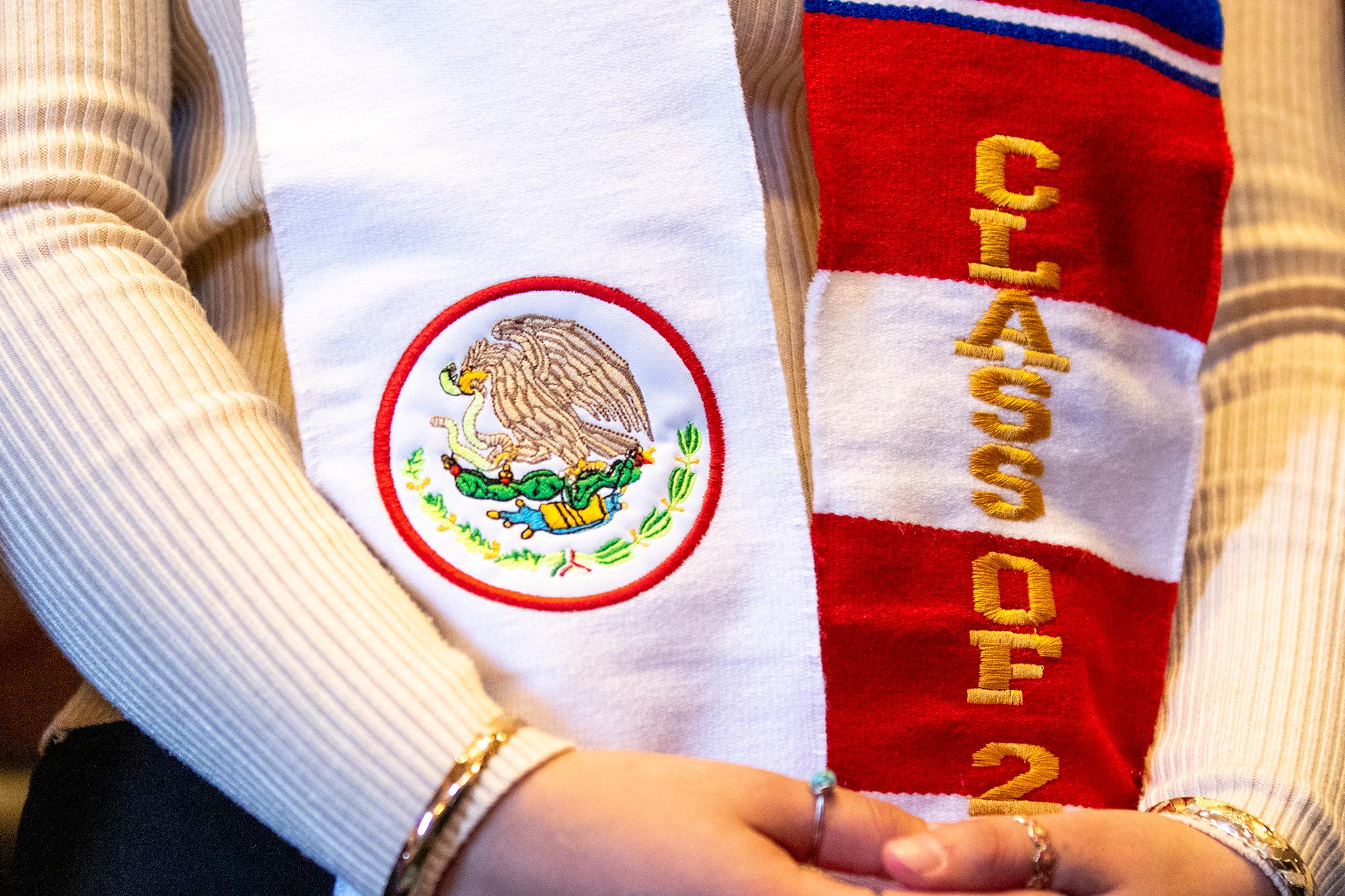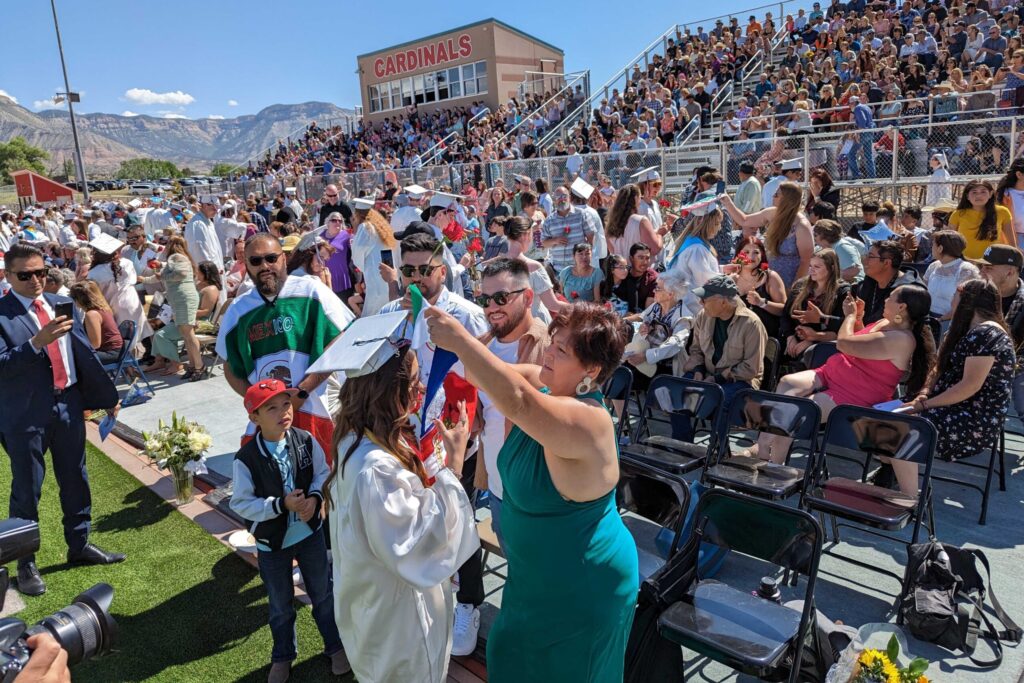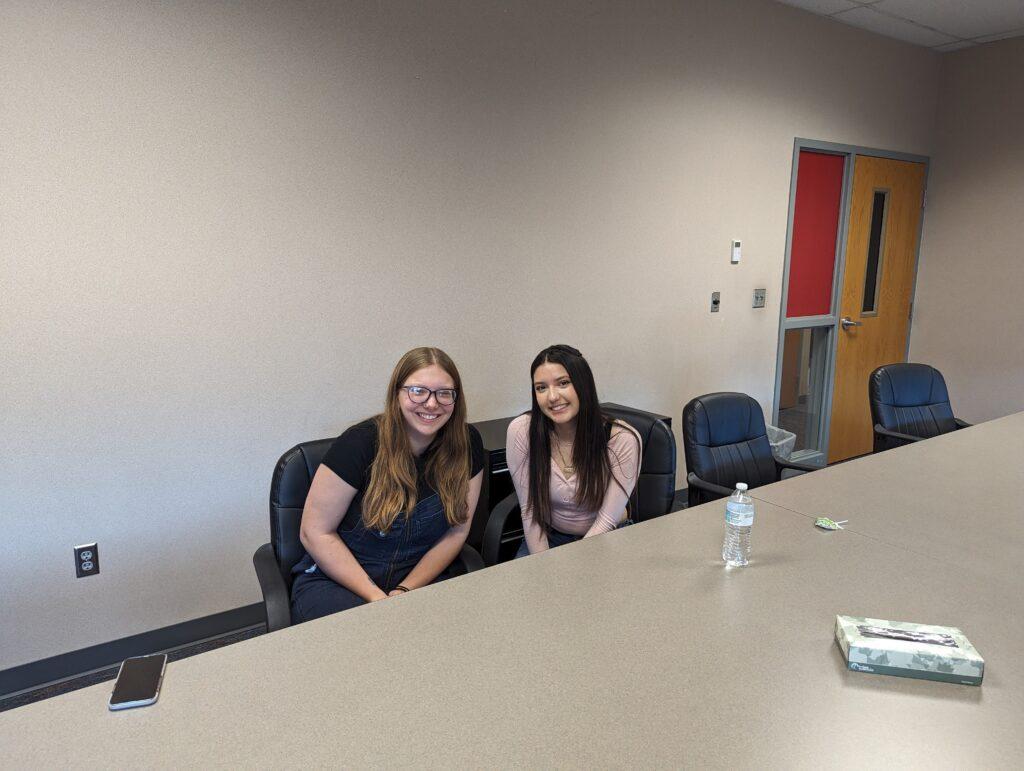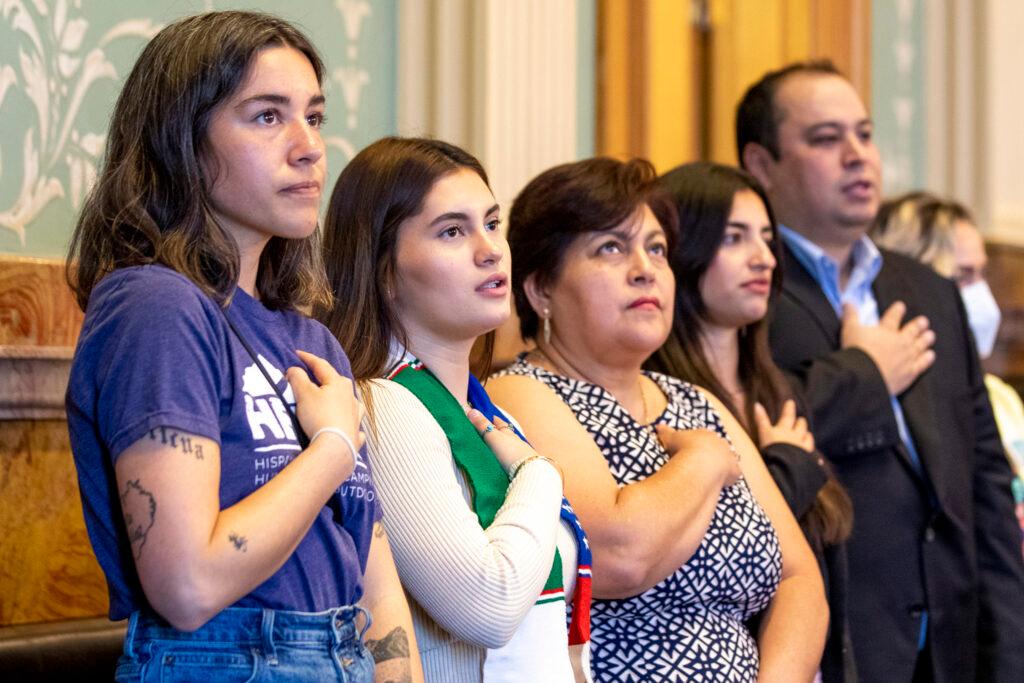
A dispute over cultural regalia at a high school graduation in Parachute has prompted talk of changes both locally and statewide.
Last May — after weeks of back-and-forth with Grand Valley High School officials, a failed court challenge contesting the school’s policy and national headlines — Naomi Peña Villasano did walk at her graduation ceremony wearing a stole featuring the flags of the United States and Mexico. The stole was a gift from one of her brothers, and a nod to her Mexican-American heritage.
Now, changes are in the works both at the State Legislature, where lawmakers will consider a bill allowing for items of cultural and religious significance at graduations, and in Parachute, where a collection of this year's seniors have collaborated to alter the policy ahead of the ceremony this spring.

“It was just nice to all come to an agreement as a class,” Rosalinda Valdez, a senior on the student leadership team, said. “We all had a say in it, right? So it was nice that we got to get a say in how we're going to graduate.”
That effort makes good on a commitment made by the Garfield County District 16 Board of Education last May, when then-Board President Lynn Shore said the policy would not be changed for 2023 but could be reviewed for this year.
Brooklyn Millius, this year’s student body president at GVHS, says the swirl of attention on Parachute last year did prompt some reflection.
“Personally, I was a little surprised. I'd never thought of that before and you don't really think about those things. Maybe because I don't really have a specific culture that I adhere to,” Millius said. “And I think it's probably a good thing that the classes themselves get to choose — that my class got to get together and say, ‘do we want this or do we not?’ I think it's very important for self-advocacy.”

Changes to regalia policy for 2024 graduates
Millius said the student leadership team met and settled on a policy that they hope will allow students to honor their origins while maintaining an element of uniformity. They presented their plans to the school board in January. Modeled after an approach used by Colorado Mountain College, the school district will purchase stoles that, in addition to the customary academic and military honors, include nods to cultural heritage. That regalia would be consistent across the class and students could either purchase the items to keep or leave them with the district for future classes.
“We're like a union,” Valdez said. “But, then again, we all, individually, have our own backgrounds and a way to express ourselves but we all are the Grand Valley Cardinals and how we represent ourselves is through graduating, but also having in mind who we are too as a person and keeping that true to ourselves.”
Valdez said examples include stoles for pride, Hispanic Heritage and African American heritage and that students seeking another platform for expression still have leeway to decorate their caps however they like.
Still, Peña Villasano’s stole from last year would not be permitted under the changed rules because it was custom made.
Millius said she understands the argument for fewer policy restrictions, but that the students tasked with reviewing the policy for this year felt the changes struck the right balance.
“I would say that we are trying to stick together as a school, as a united front,” she said. “So there should still be a way to be individual, that's your cap, but actual regalia, we should be uniform because we are all Grand Valley Cardinals.”

HB 24-1070: Allowing Certain Items at School Graduation
As last year’s controversy was making headlines, Peña Villasano was invited to the Capitol by House District 57 Rep. Elizabeth Velasco. Velasco’s district includes Parachute and while it was too late then to tackle the graduation issue legislatively, Velasco did pledge to bring it up this cycle.
“Last year we passed the bill around making sure that our Native American community members are able to come as their most authentic selves and wear graduation regalia from pre-K all the way to college,” Velasco said. “And, this year, we are not changing anything from the bill that we passed last year with so much support from more tribal communities and we want to make sure that we are adding a different section into the conversation.”
That section takes the same path of permitting regalia and prohibiting schools from excluding it at a graduation ceremony, and it adds items of cultural and religious significance.
The bill still allows schools some authority, noting that institutions can prohibit graduates “from wearing or displaying an item that is likely to cause substantial disruption of, or material interference with, a graduation ceremony, but the prohibition must be the least restrictive means necessary to accomplish a specifically identified important government interest.”
“We are not trying to replace the cap and gown and we want to give and allow flexibility for schools to determine when something is disruptive,” Velasco said.
Alex Sánchez, president and CEO of the advocacy organization Voces Unidas de las Montañas, said school policy debates over specific regalia are “a waste of time” that the new legislation will help schools and graduates avoid.
“It is not productive. It doesn't have nothing to do with safety, has nothing to do with keeping an orderly graduation. It is just someone's belief that this is what's appropriate and what's not appropriate and what we believe is that it should be against state law for some arbitrary principal or group of educators in some random school district to deny some students the right to celebrate their culture and other students have the right to do whatever they want,” Sánchez said.
Voces Unidas de las Montañas backed Peña Villasano last year when she went all the way to U.S. District Court in an effort to wear the stole honoring her heritage. Peña Villasano is still working with lawmakers on the effort.
“Now that I look back, it's kind of heartbreaking to see how there are a few people who supported this so much and now they don't care,” Peña Villasano said. “Especially a lot of graduates that are like, ‘oh, I don't care, I already graduated.’ But I don’t know. I think it's just the type of person that I am and just because in general this is about humanity, it's about our rights and our freedom of speech, and there's a lot to it that to me it's like I'm not going to go down without a fight.”
Peña Villasano is studying at Colorado Mountain College with an eye toward social work. She said she will be speaking on behalf of the legislation.
“This is just something that really needs to get resolved. I mean, it's bizarre that we are this far in the years, like we are in 2024 and this was a fight back in 2023,” she said.
The bill is slated to come up for consideration Feb. 29. Velasco said her district is 30% Latino and still needs work to make sure schools are serving their entire student populations.
“Even though we are majority minority schools, we still see that our rates of graduation are lower (than our) white peers,” she said. “We want everyone in the community to celebrate their diversity, to show up as their most authentic selves and have options and opportunities when they graduate.”









